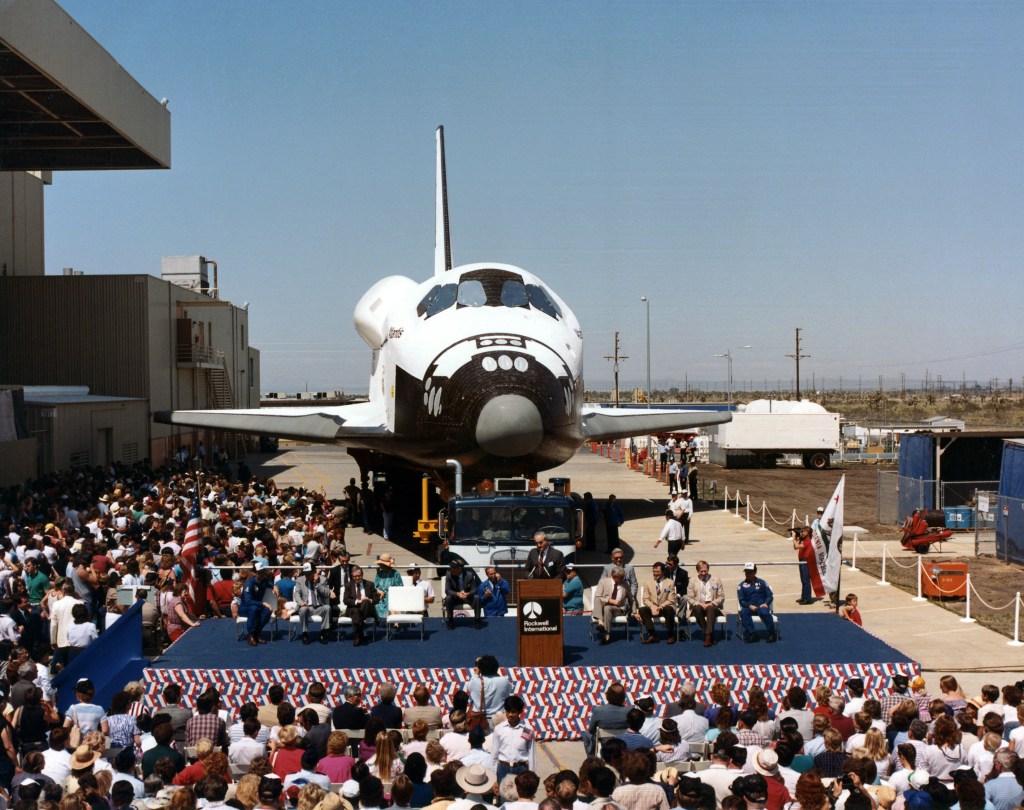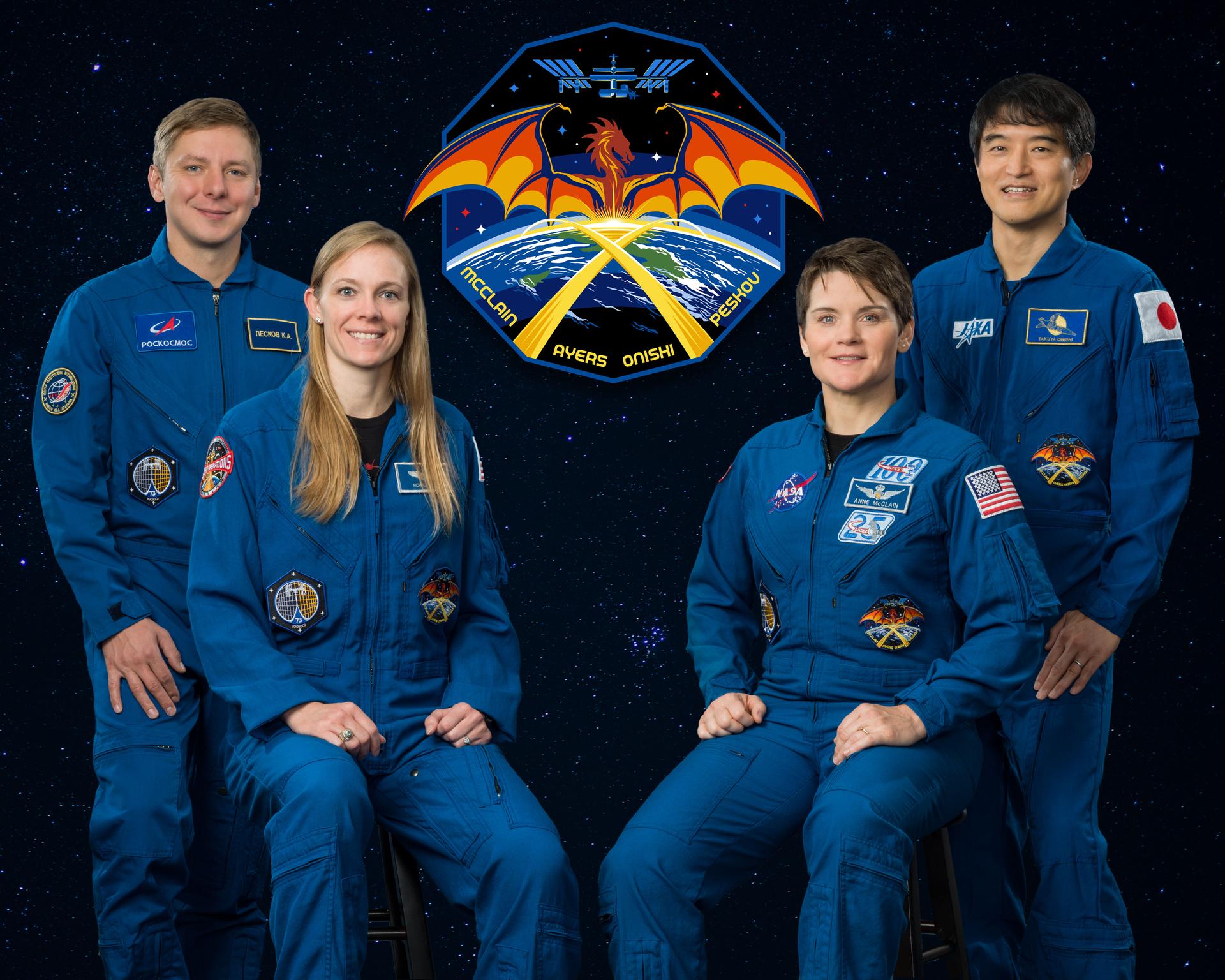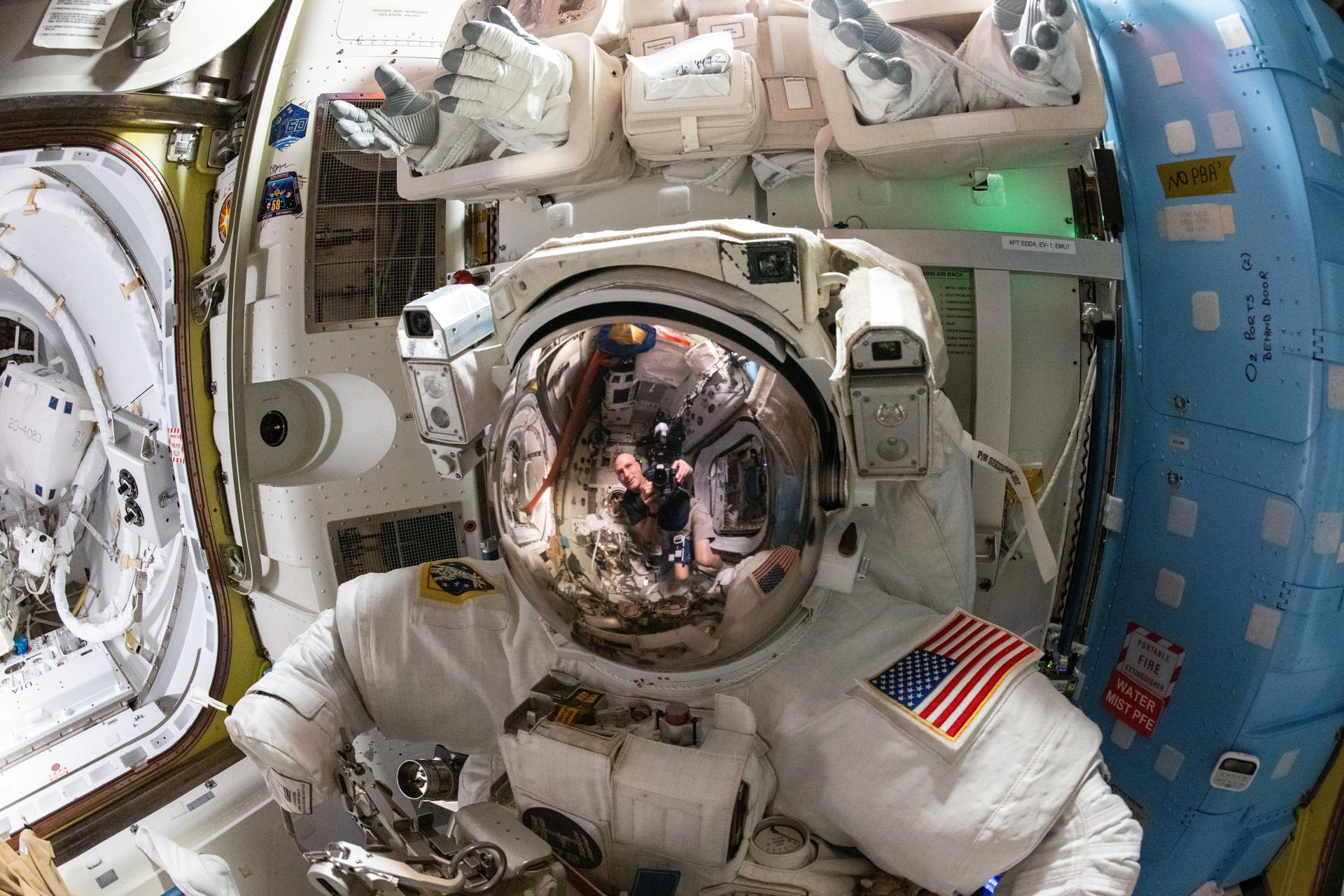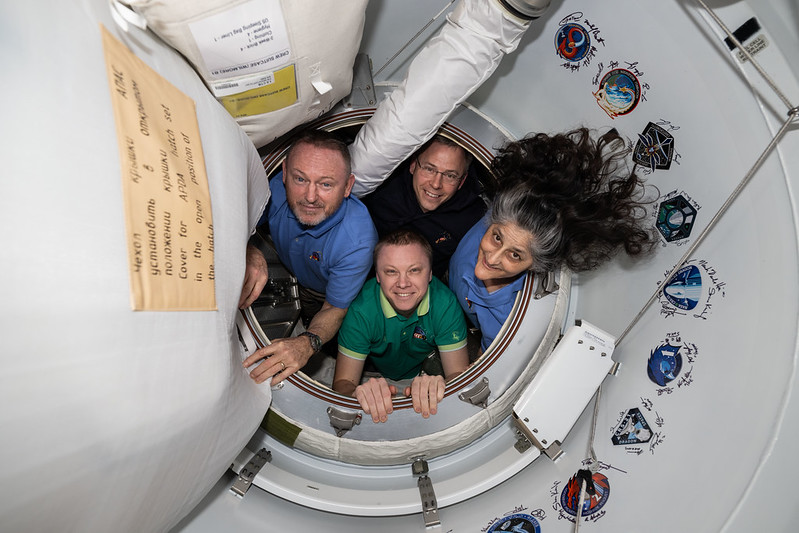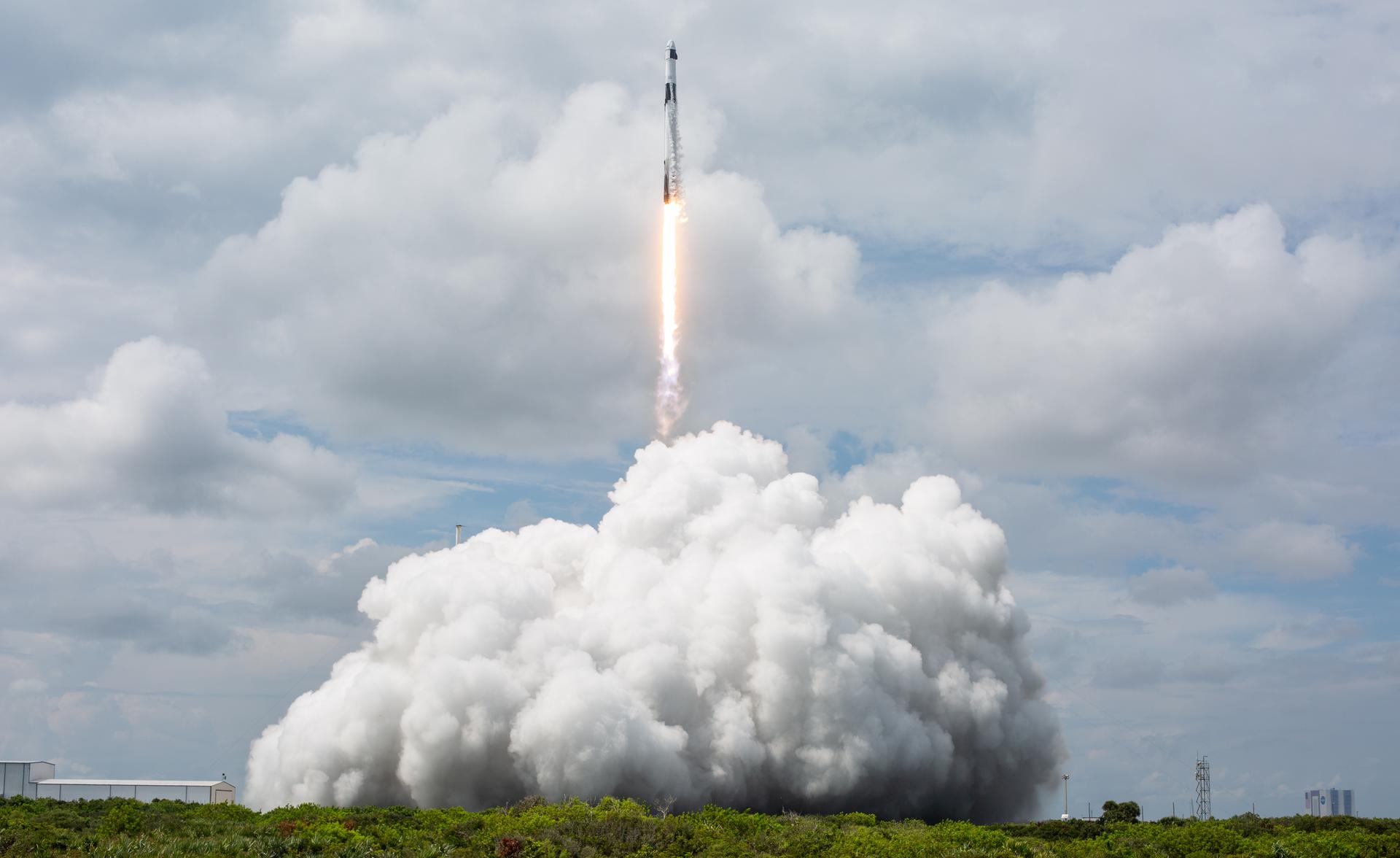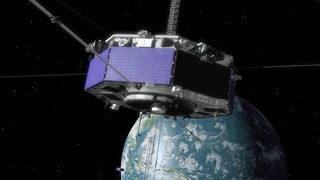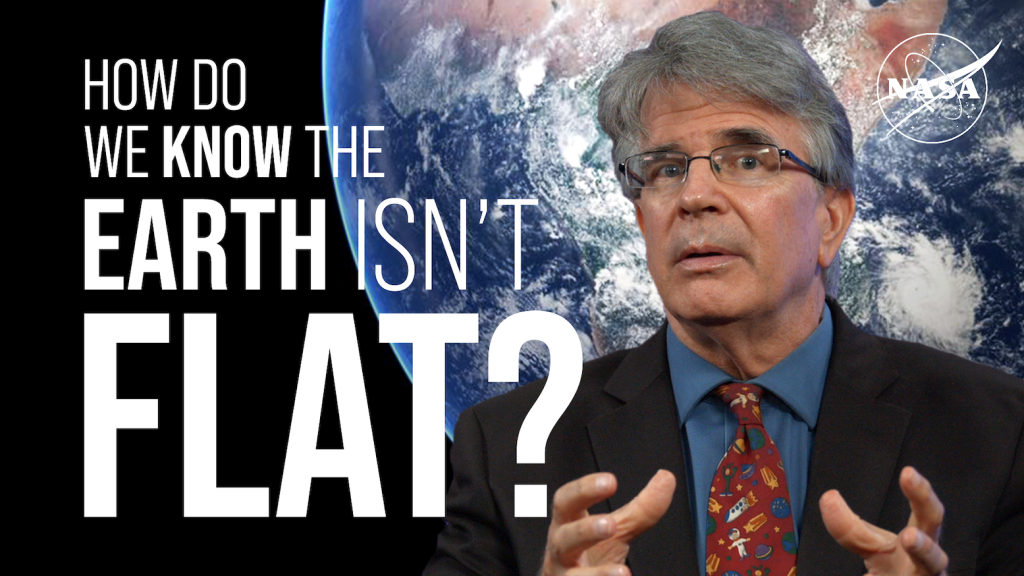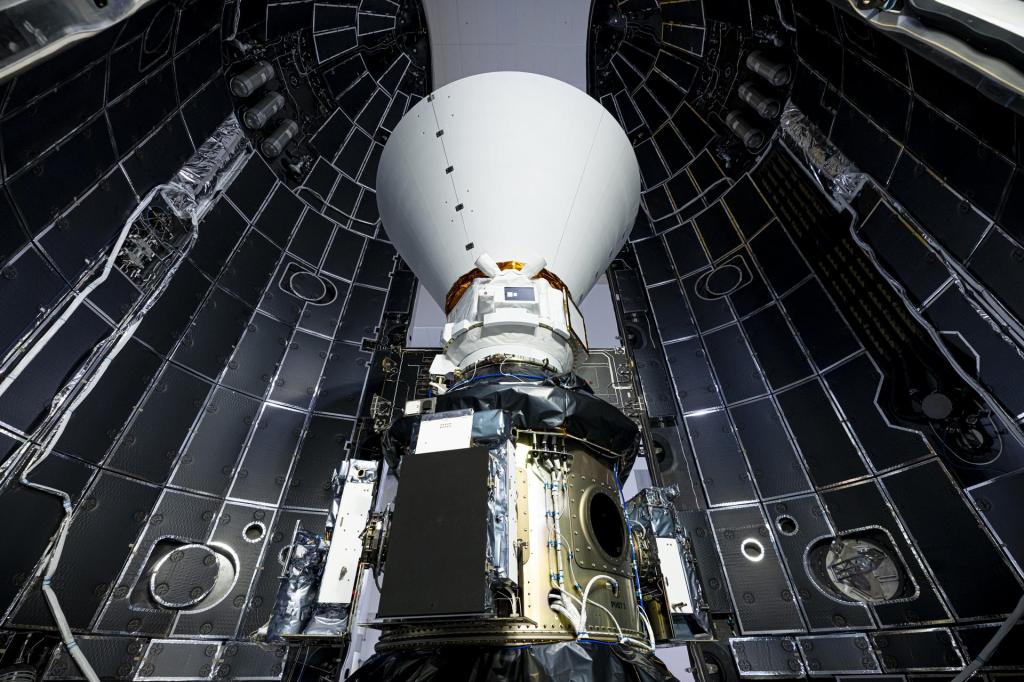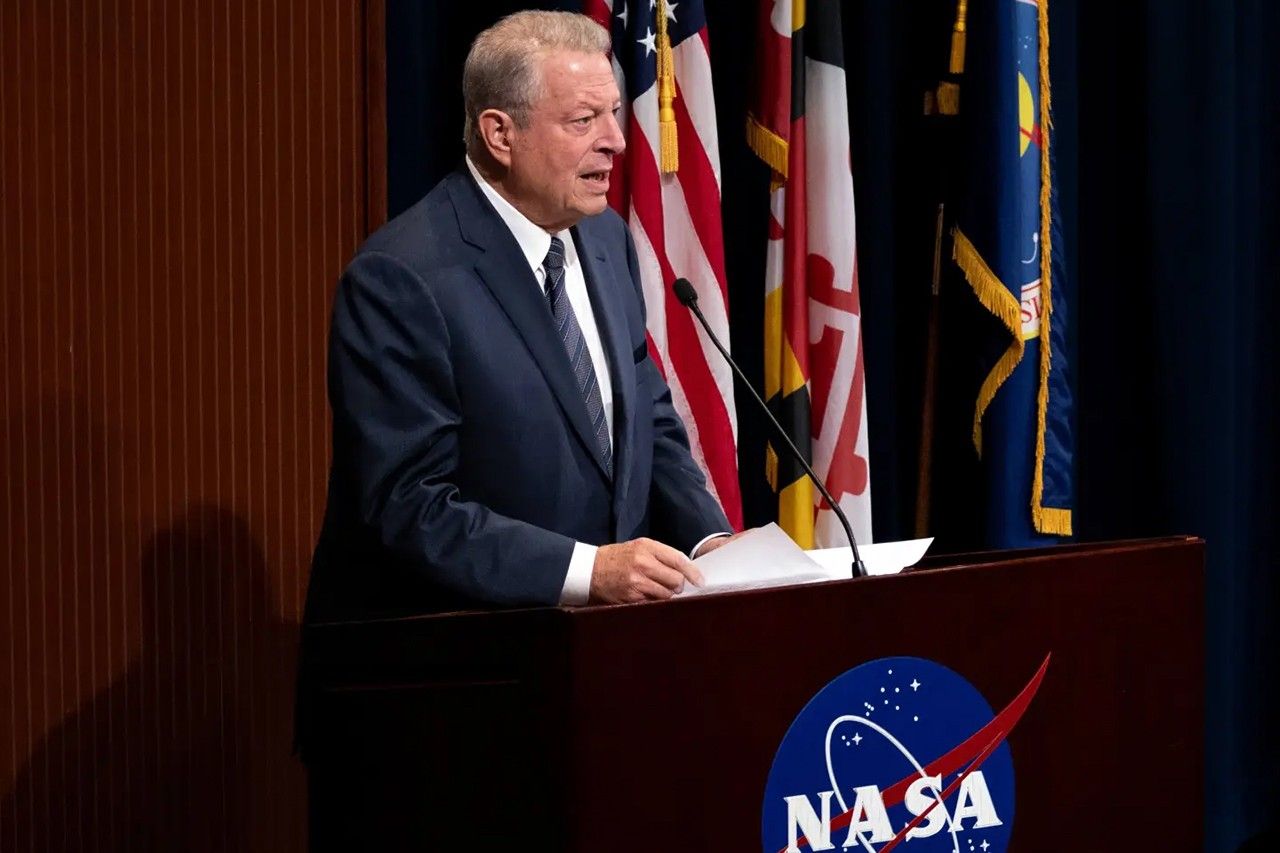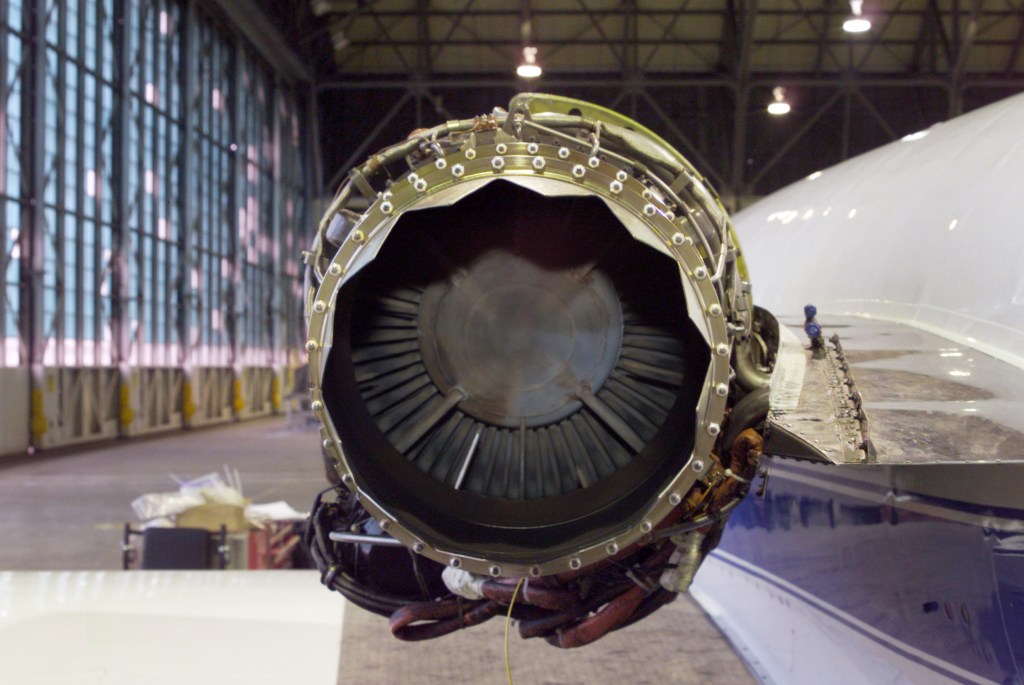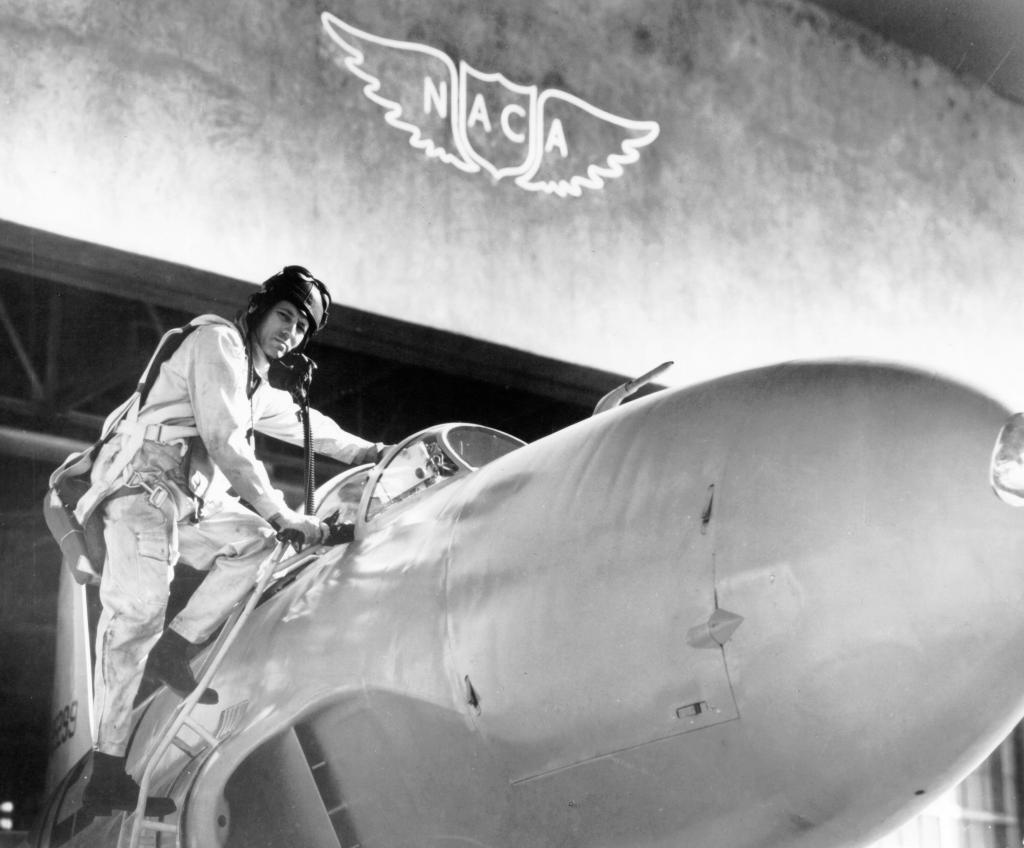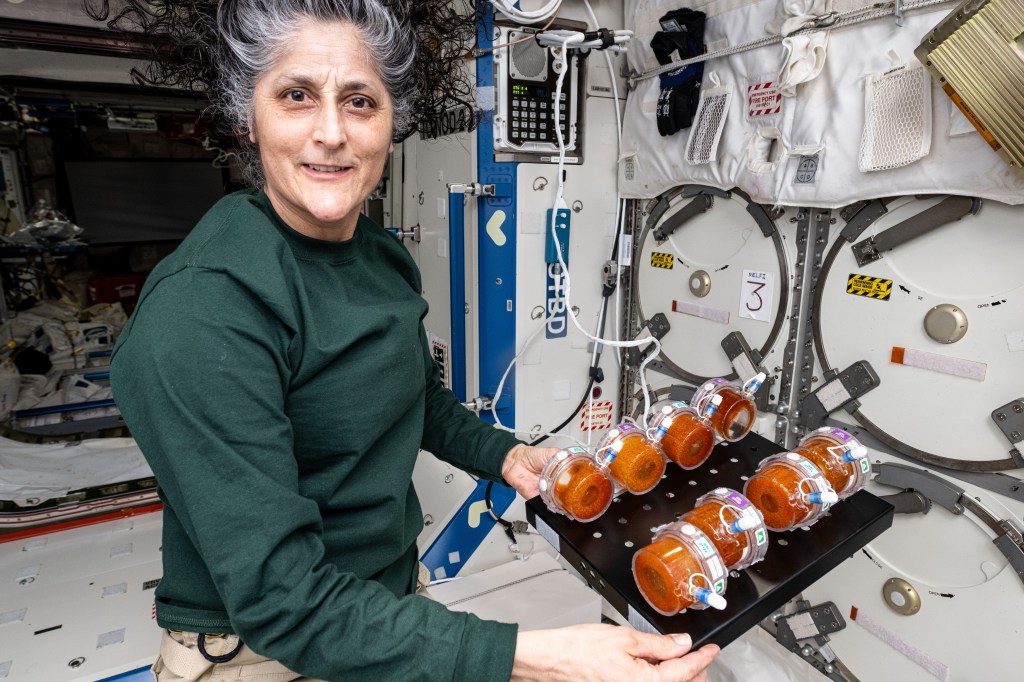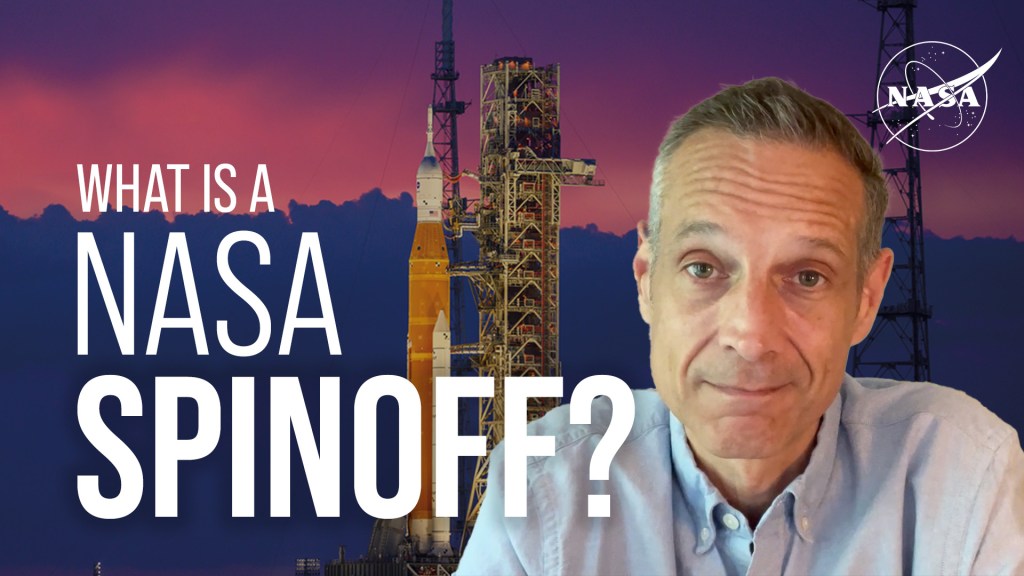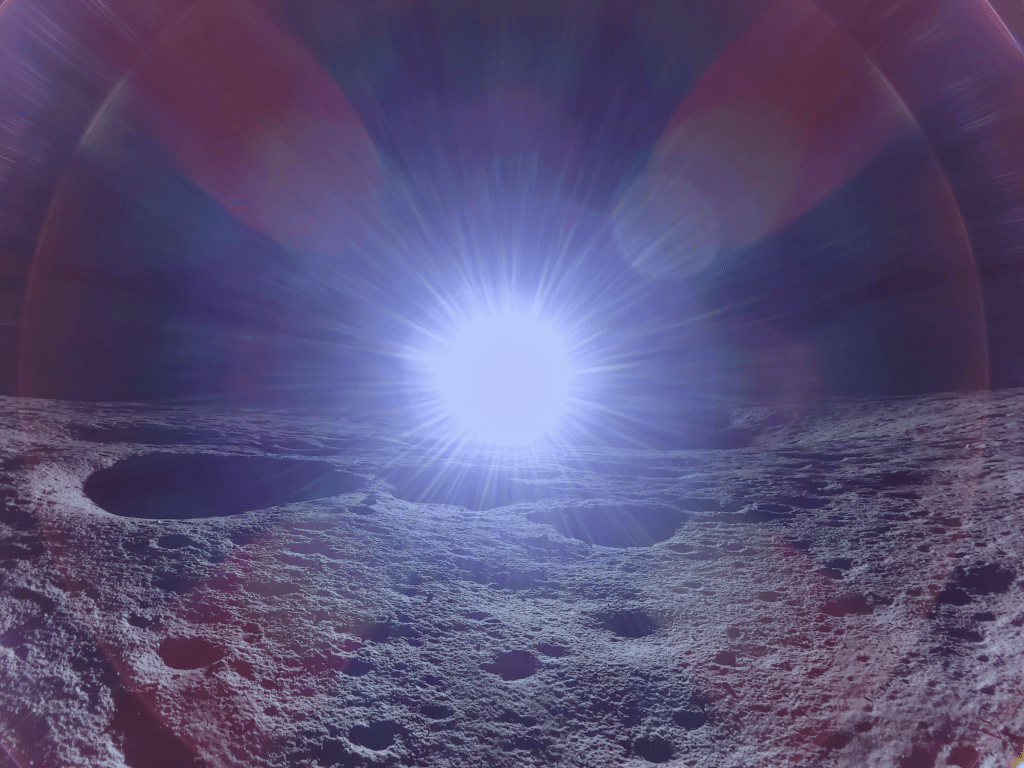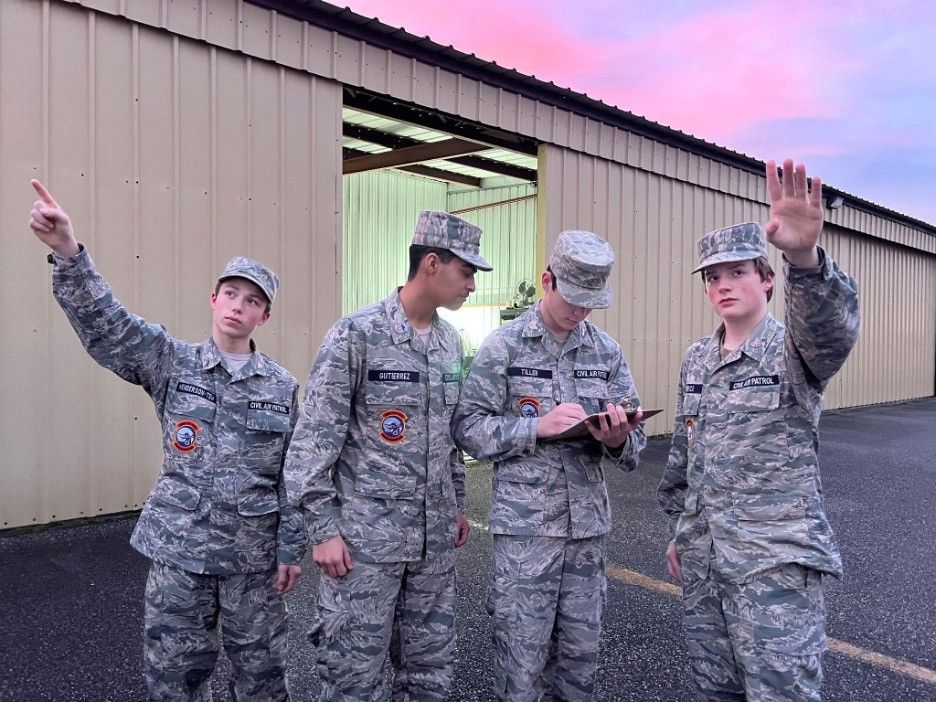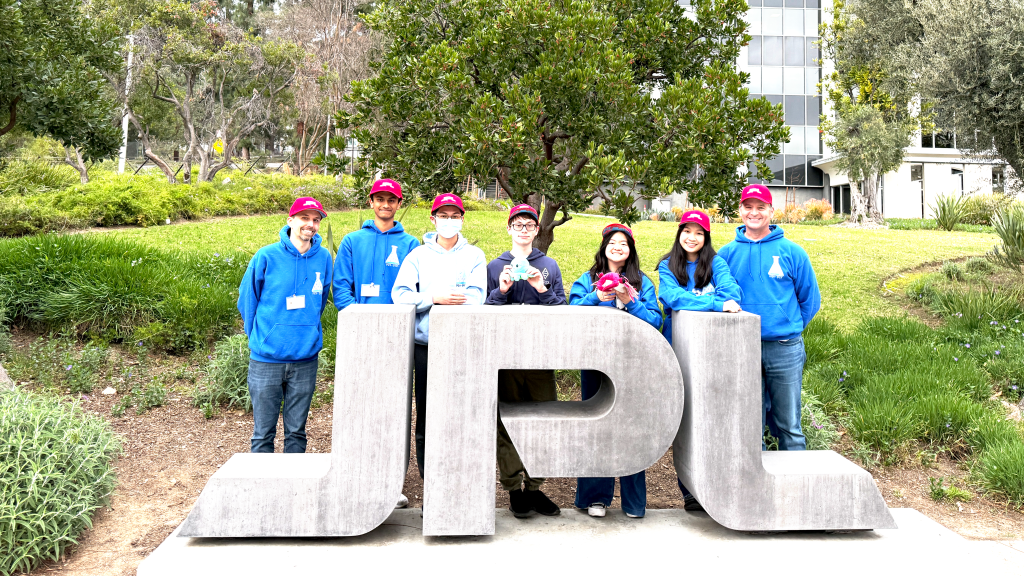With April designated as National Poetry Month, it seems fitting to explore the relationship between spaceflight and poetry. A vast literature exists to explain space to the public, much of it technical in nature. Some authors, including astronauts, share the experience of space through biographies and autobiographies, novels, photographs, and less frequently, poetry. It’s often been said that poets should experience first-hand the wonders of spaceflight and of seeing the Earth from orbit. Until that time, a few astronauts have sought to capture their experiences, during and after their missions, and share them through the medium of poetry. The astronauts’ experiences on lunar missions and on long-duration expeditions aboard the International Space Station provide unique perspectives shared through their poems. Other astronauts enjoyed reading poetry while in space, sharing them with people on Earth.
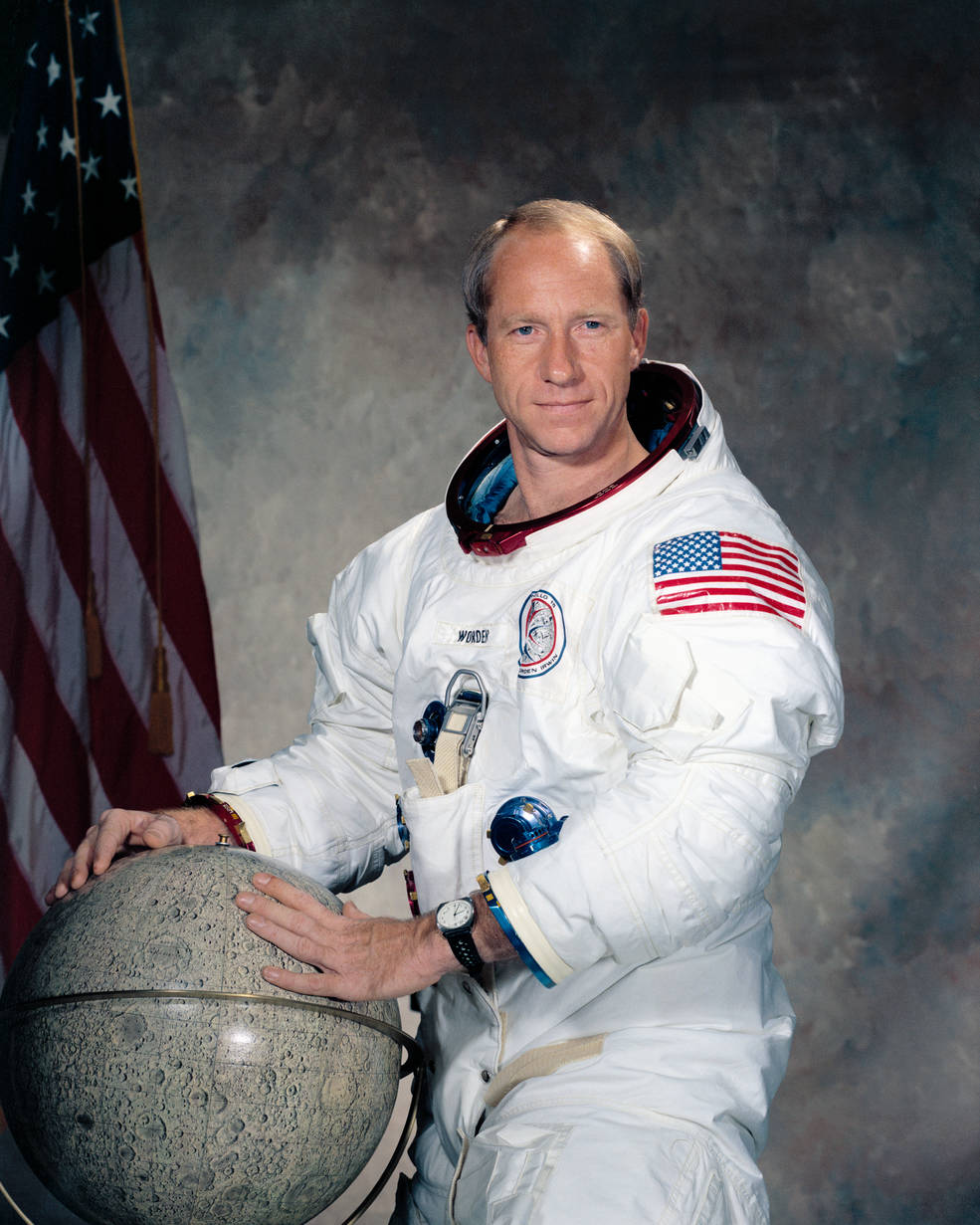
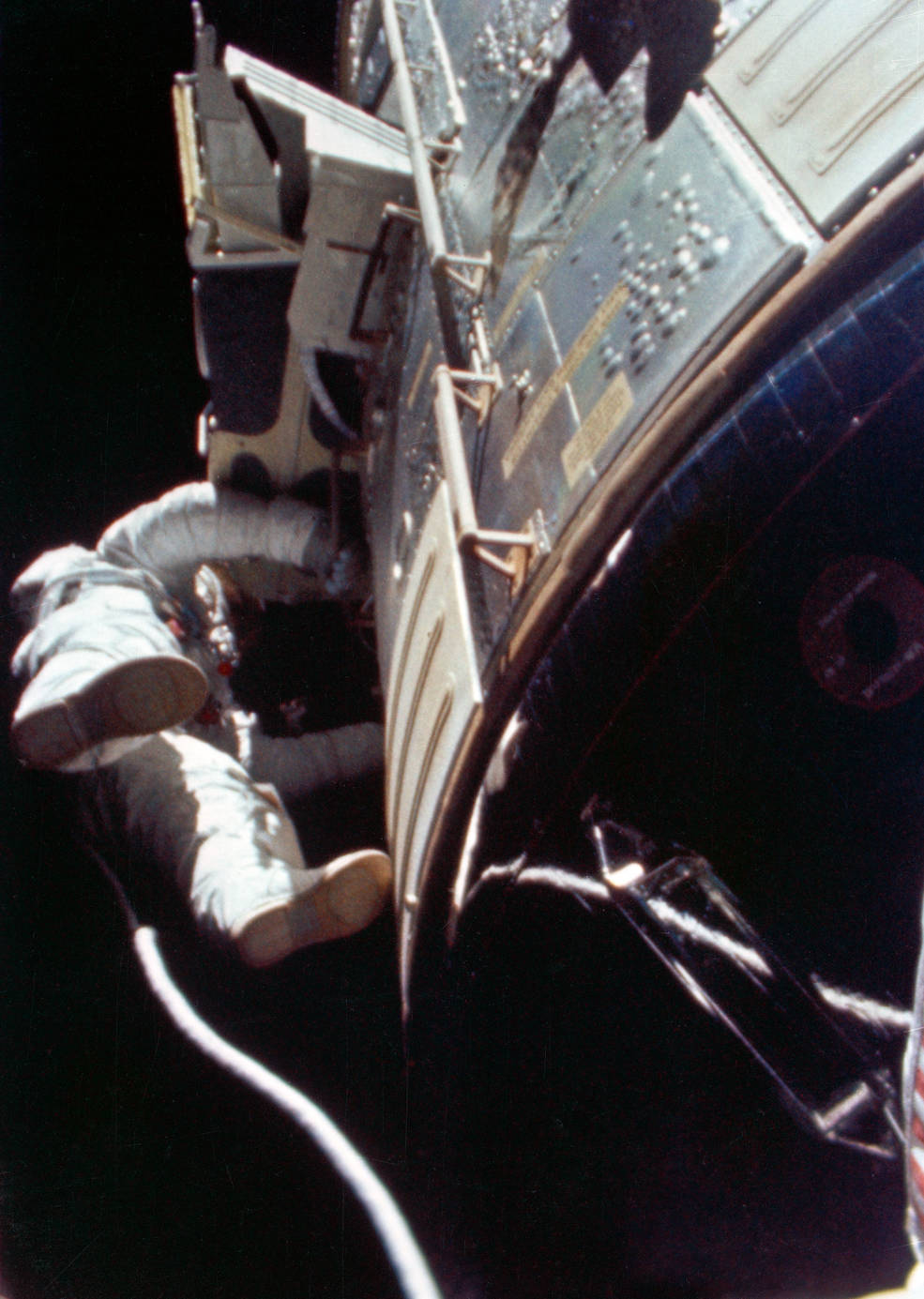
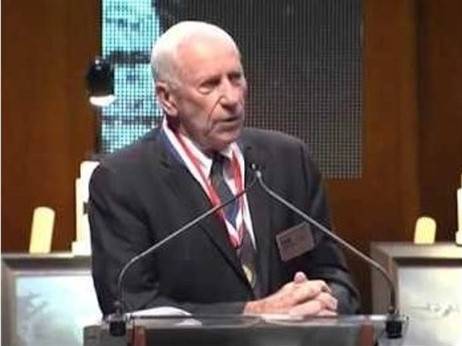
Left: Official NASA portrait of Apollo 15 astronaut Alfred M. Worden. Middle: Worden performing the first deep-space spacewalk in 1971. Right: Worden reading his poetry at the San Diego Air & Space Museum in 2016.
Inspired by his recent return from the Apollo 15 Moon mission in 1971, astronaut Alfred M. Worden captured the experiences he shared with his crewmates by writing poetry.
After reading a selection of his poems before the Poetry Society of Texas in 1972, two years later he published his collection of poems in a book entitled “Hello Earth: Greetings from Endeavour,” the name of the Apollo 15 Command Module. The work remains the only book of poetry written by an Apollo astronaut. By Worden’s own self-deprecating admission, “the poems are as good as what you might expect from a pilot,” but given his unique perspective, they provide a glimpse into the experience of spaceflight and of traveling to the Moon and back. Worden occasionally read his poetry publicly, as during his 2016 induction into the San Diego Air & Space Museum Hall of Fame when he recited his poem “Oceans.”
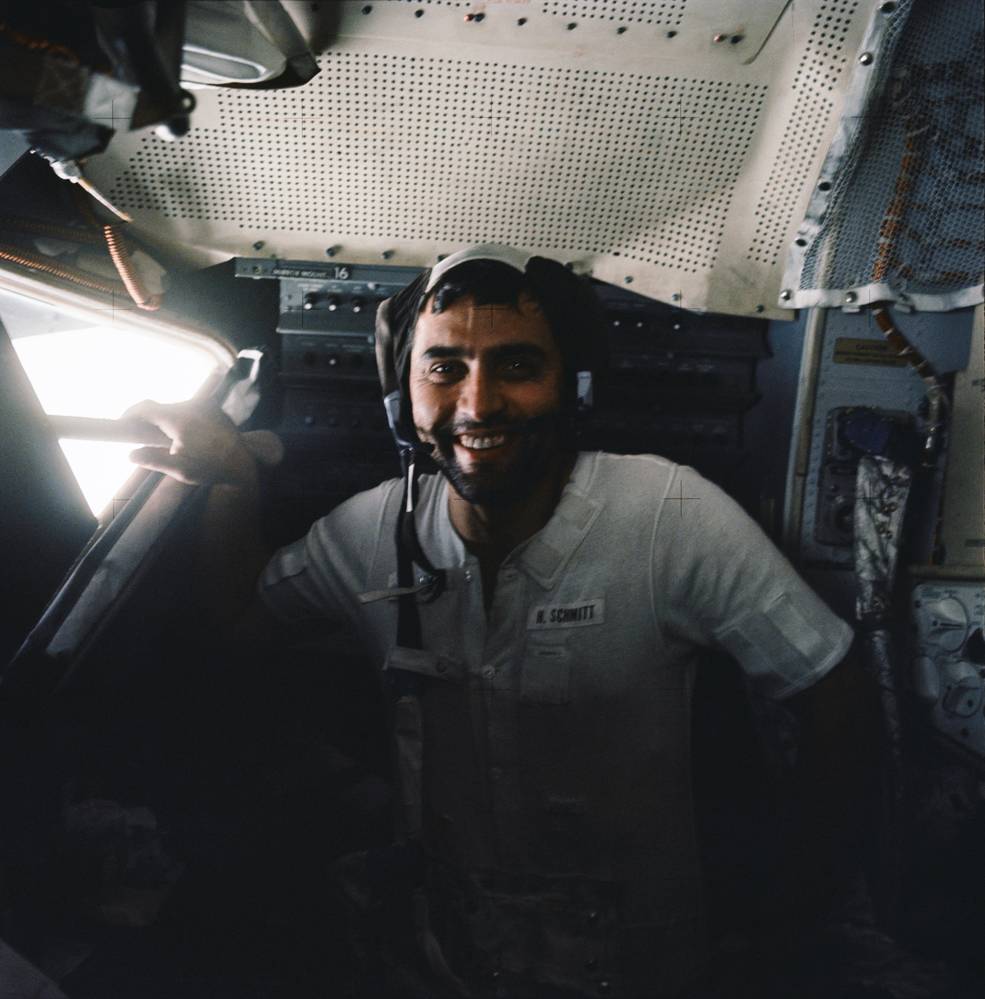
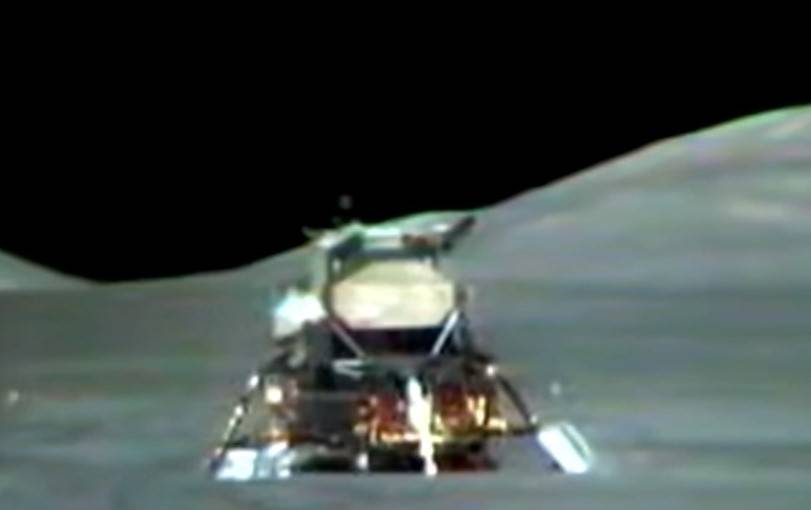
Left: Apollo 17 astronaut Harrison H. “Jack” Schmitt in the Lunar Module (LM) Challenger on the lunar surface, after the conclusion of the mission’s third and final Moon walk. Right: The LM Challenger moments before lifting off the lunar surface.
On Dec. 14, 1972, shortly after waking up on the last morning of their stay on the lunar surface, Apollo 17 astronauts Eugene A. Cernan and Harrison H. “Jack” Schmitt exchanged songs with Mission Control in Houston. Feeling elated about their three excursions on the lunar surface, they prepared and ate their last breakfast on another world and readied their Lunar Module (LM) Challenger for liftoff in a few hours. Inspired by the Christmas season, Schmitt radioed up to Mission Control his adaptation of the poem “The Night Before Christmas.”
It’s the week before Christmas and all through the LM,
Not a commander was stirring, not even Cernan.
The samples were stowed in their places with care,
In hopes that with you, they soon will be there.
And Gene in his hammock and I in my cap,
Had just settled our brains for a short lunar nap.
But up on the comm loop there rose such a clatter,
I sprang from my hammock, to see what was the matter.
The Sun on the breast of the surface below,
Gave the luster of objects, as if in snow.
And what to my wondering eyes should appear,
But a miniature Rover and eight tiny reindeer.
And a little old driver so lively and quick,
I knew in a moment, it must be St. Nick.
I heard him exclaim as over the hills he did speed.
Merry Christmas to all and to you all Godspeed.
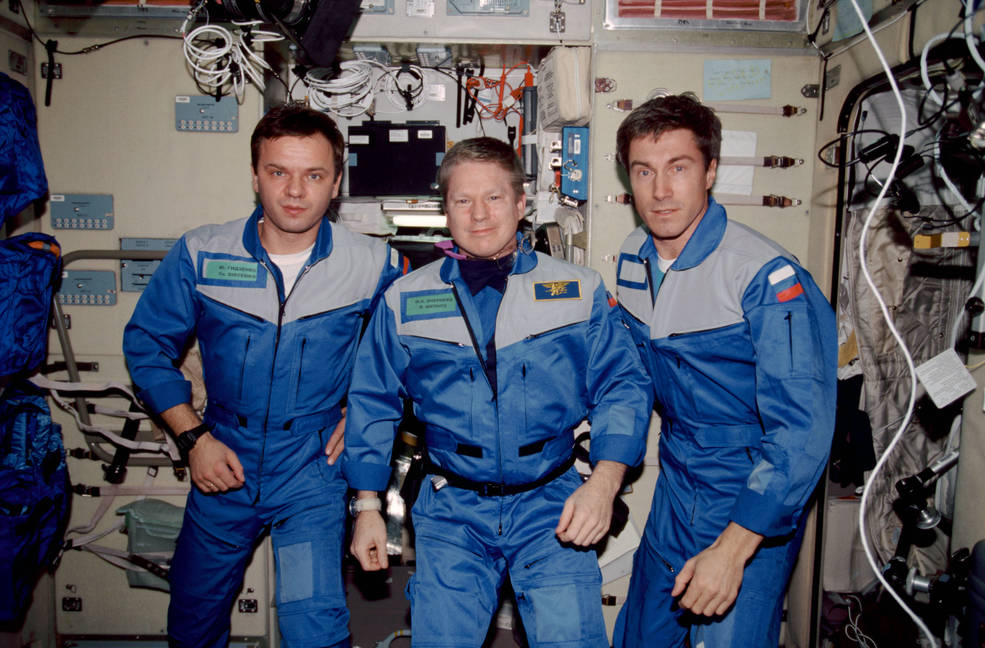
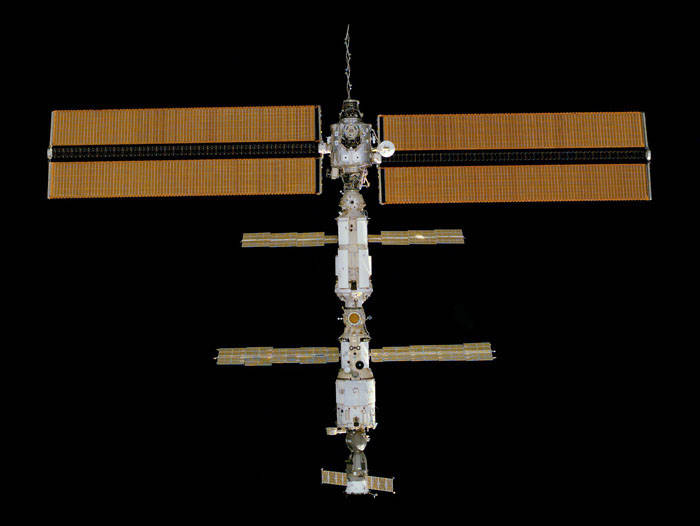
Left: Expedition 1 crewmembers Yuri P. Gidzenko of Roscosmos, left, NASA astronaut William P. Shepherd, and Sergei K. Krikalev, also of Roscosmos, pose in the space station’s Zvezda module. Right: The configuration of the space station on Jan. 1, 2001.
The Expedition 1 crew of NASA astronaut William M. Shepard and Yuri P. Gidzenko and Sergei K. Krikalev of Roscosmos began continuous occupancy of the space station on Nov. 2, 2000, and celebrated the first New Year’s Day aboard the orbiting lab. Shepherd, a Captain in the U.S. Navy, honored a naval tradition of writing a poem as the first entry of the new year in the ship’s log.
We sail onboard space station “Alpha”
Orbiting high above Earth, still in night
Traveling our destined journey
beyond realm of sea voyage or flight
A first New Year is upon us
Eight strikes on the bell now as one
The globe spins below on its motion
Counting the last thousand years done.
15 midnights to this night in orbit
A clockwork not of earthly pace
Our day with different meaning now
In this, a new age and place
We move with a speed and time
Past that which human hands can tell
Computers programmed—like boxes
Where only thoughts’ shadows dwell
“Central post” our ship’s bridge aboard
Screens dancing shapes in pale glow
We guide her course by electronic pulse
In figures no compass could show
Our panels set as sails to the Sun
With wake not ever seen but there
Only gyros feel the silent tugs
Wisps, swirls of such ocean rare
On this ship’s deck sits no helm now
Rudder, sheet, and rig long since gone
But here still– a pull to go places
Beyond lines where sky meets the dawn
Though star trackers mark Altair and Vega
Same as mariners eyed long ago
We are still as wayfinders of knowledge
Seeking new things that mankind shall know.
We commend to crews that will follow
Merit of the good ship we sail
Let Sun shine strong on Alpha’s wings
A symbol, and bright star we long hail
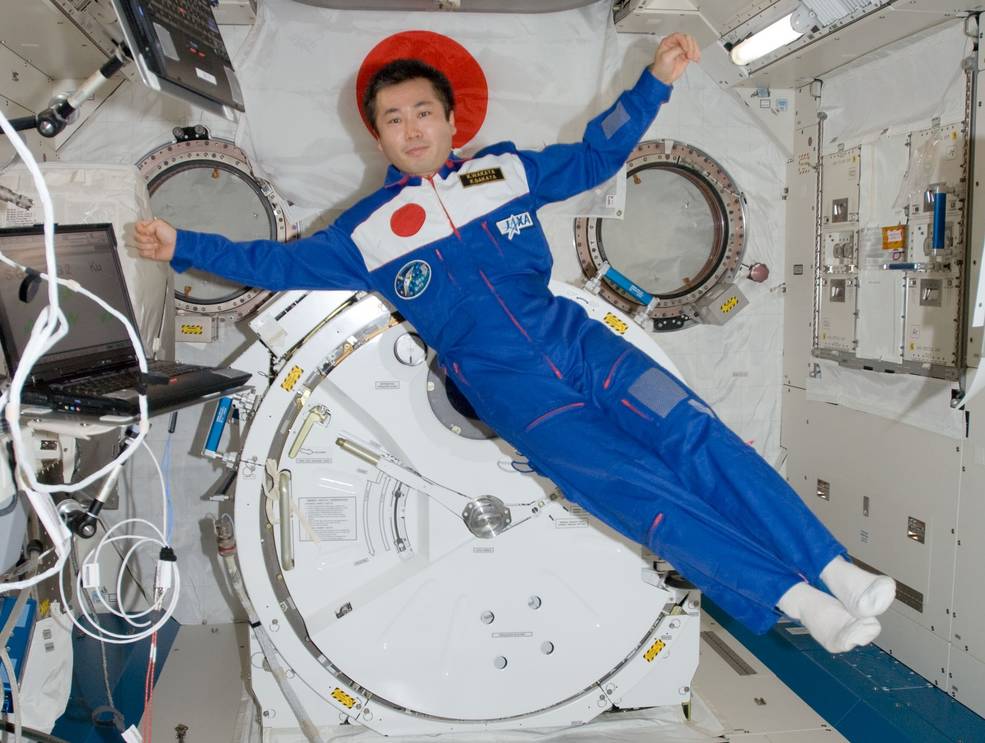
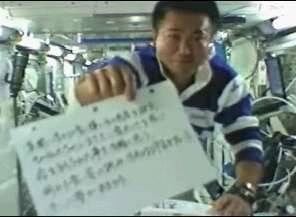
Left: Expedition 18, 19, and 20 Flight Engineer Koichi Wakata, representing the Japan Aerospace Exploration Agency, floats in the Kibo module. Right: Wakata holds up his renshi poem to the TV camera.
Renshi – meaning “linked poetry” in Japanese – is a form of collaborative poetry pioneered in Japan in the 1980s and typically composed by a group of poets in sessions lasting several days. During Expeditions 18, 19, and 20, when he served as the first long-duration astronaut from the Japan Aerospace Exploration Agency, Koichi Wakata participated as the 25th link in a Space Poem renshi chain. He composed the poem aboard the space station, and read and displayed it during a television downlink broadcast on April 10, 2009. More information can be found here.
Afloat in the darkness before my eyes, the watery planet bluely glows
How strong is my affection for that ancient home of ours,
how deep my gratitude for the gift of life.
Tomorrow, I will dare the blue sky and open up worlds unknown
for there we have our dreams.
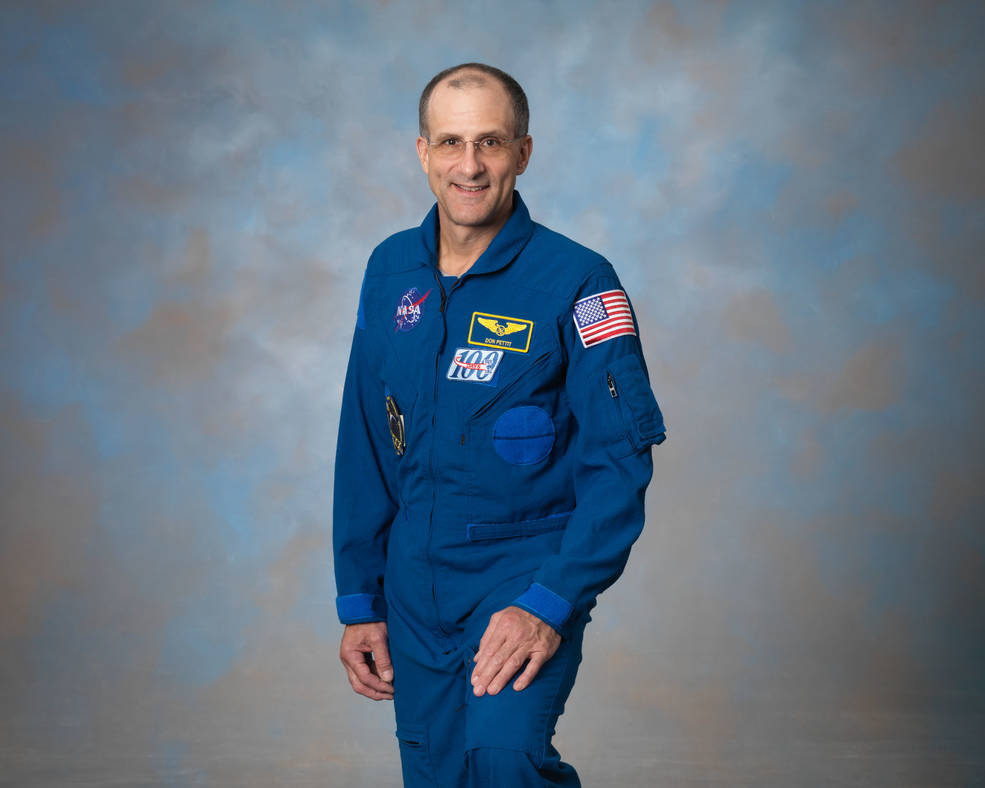
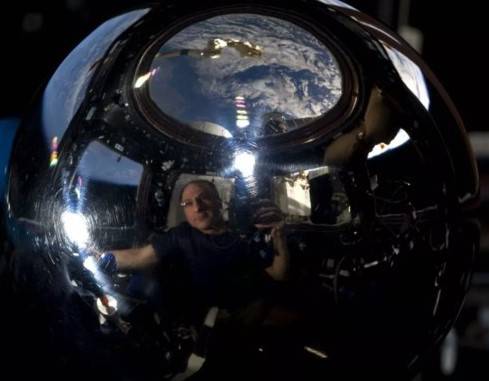
Left: Official NASA portrait of Expedition 30 and 31 flight engineer Donald R. Pettit. Right: Pettit selfie in the Cupola during Expedition 30.
During his first long-duration mission as Expedition 6 flight engineer, NASA astronaut Donald R. Pettit pioneered what he called Saturday Morning Science to offer demonstrations of life in orbit and the peculiarities of weightlessness during his weekend free time. On his next mission, as Expedition 30 and 31 flight engineer, Pettit expanded his repertoire of recreational activities to include writing poetry. In honor of National Poetry Month in April 2012, he composed two poems entitled “I Wonder Why” and “Space is My Mistress,” posting them on his blog. On June 29, 2012, his last full day in space, Pettit posted on his blog a poem reflecting on his thoughts and feelings about returning to Earth after six months in space.
Last Day in Space
Tomorrow we light our rocket,
we burn our engines and likewise,
burn a hole in the sky,
And thus fall to Earth.
How does one spend your last day in space?
Looking at Earth,
a blue jewel surrounded by inky blackness,
Pure Occipital Ecstasy.
Unconstrained by your girth,
you fly with vestigial wings.
The atmosphere on edge,
iridescent blue with no earthly parallel,
Electrifying Diaphanous Beauty.
Guarded by Sirens of Space,
singing saccharine songs,
beckoning you to crash on the atmos-reef
which tears you limb from limb
and scorching what remains
into cosmic croutons that sprinkle onto
the garden salad of Earth.
One last feast out the window,
A looking glass of Wonderland.
Offering both a portal to see your world,
and a translucent reflection to see yourself.
Contemplation;
what is your place in this world below,
how do you change it,
how does it change you.
We are wedded to this planet,
until mass extinction we do part.
Perhaps one planet is not enough.
You study your charts,
we prepare our spaceship,
and our minds.
We make ready our descent,
into these seemingly gentle arms.
The eager anticipation of hugging your wife,
your boys with grins followed by pouting faces,
both excited to see you but not understanding why you left.
Oh how does one spend your last day in Space.
What would you do?
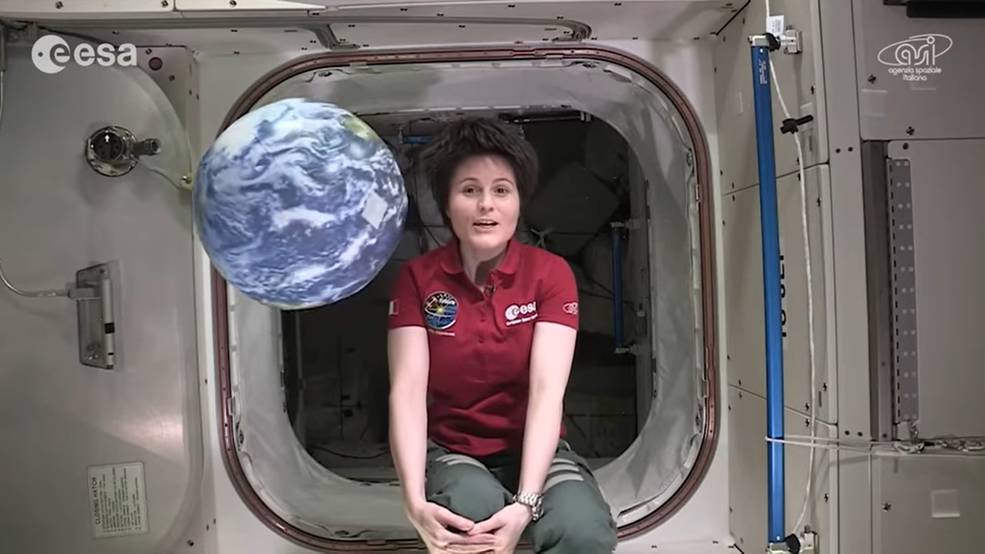
The Earth floats before European Space Agency astronaut Samantha Cristoforetti as she recites “Twinkle, Twinkle, Little Star” aboard the International Space Station.
Some astronauts enjoy reading and reciting poetry. In June 2015, during her first mission aboard the space station as an Expedition 42 and 43 flight engineer, European Space Agency astronaut Samantha Cristoforetti from Italy recorded and downlinked a video of her reciting Iza Trapani’s cosmic poem “Twinkle, Twinkle, Little Star.” She also performed readings in Russian and her native Italian.
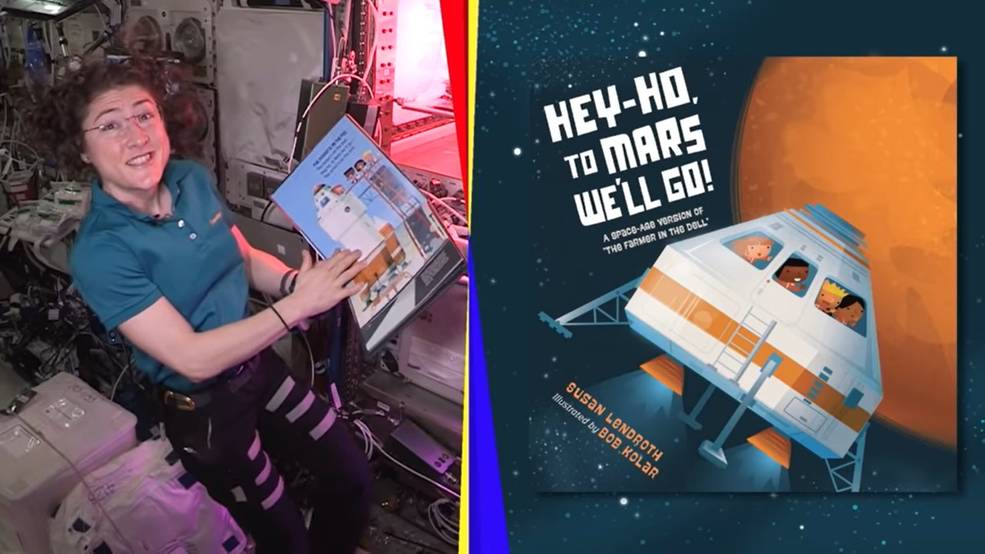
As part of the Story Time From Space project, Expedition 59, 60, and 61 flight engineer NASA astronaut Christina H. Koch reads “Hey-Ho, To Mars We’ll Go!”
Several astronauts aboard the space station have participated in the Story Time From Space project, developed by the Global Space Education Foundation, video recording themselves reading children’s books. During her flight as an Expedition 59, 60, and 61 flight engineer that set the record for the longest single flight by a woman, NASA astronaut Christina H. Koch read and sang from the book “Hey-Ho, To Mars We’ll Go!” by Susan Landroth.
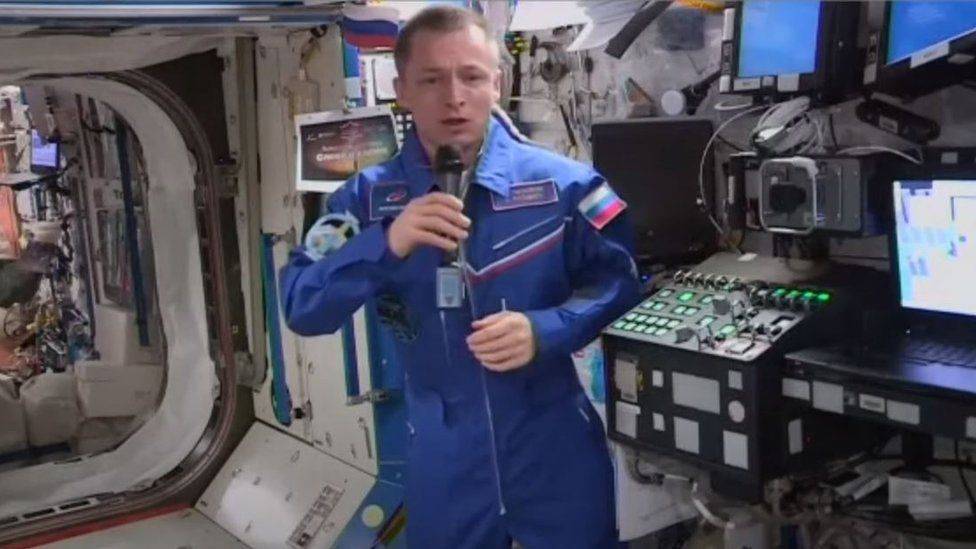
Expedition 64 commander Sergei N. Ryzhikov, representing Roscosmos, reading poetry by Mikhail Y. Lermontov during a March 2021 seminar at the University of York in the United Kingdom celebrating the Russian poet.
In March 2021, the University of York in the United Kingdom hosted a series of seminars, organized with the Moscow-based Pushkin Institute, Roscosmos, and the Moscow region governate library, to study the works of Russian romantic poet Mikhail Y. Lermontov (1814-1841). During the seminar with the theme of poetry and the cosmos, Expedition 64 commander Sergei N. Ryzhikov, representing Roscosmos, joined the online virtual seminar from aboard the space station, to the great surprise of the attendees. Ryzhikov read several of Lermontov’s poems in Russian before signing off, having participated in the seminar for about 20 minutes.


